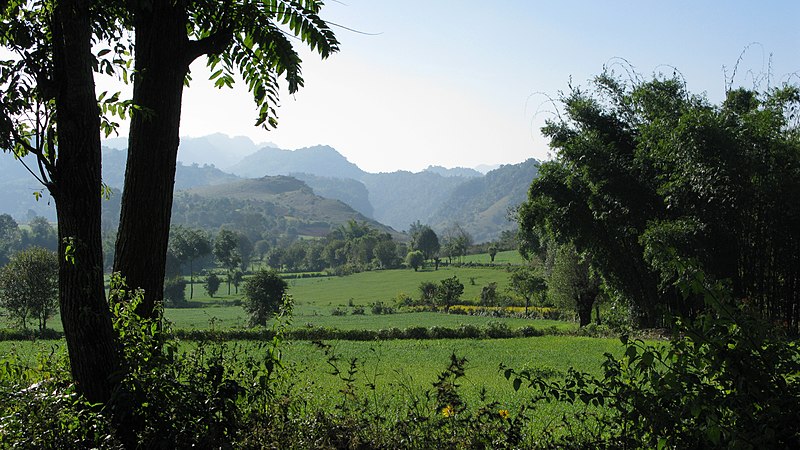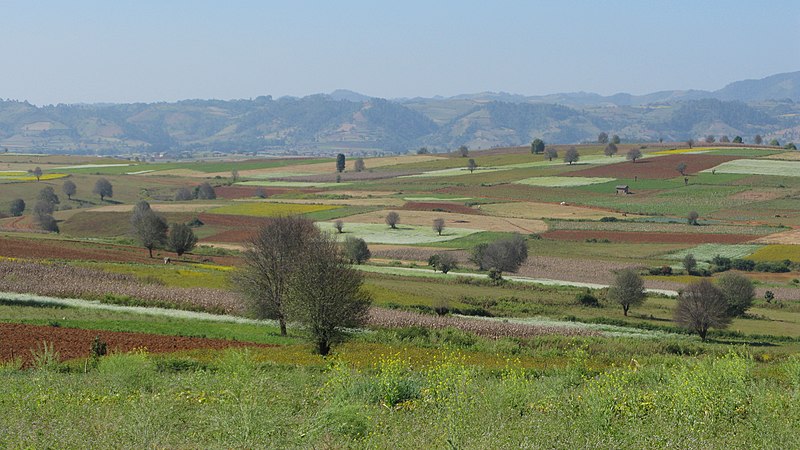
Thammasat University students interested in ASEAN studies, Myanmar, political science, history, diplomacy, international relations, and related subjects may find it useful to participate in a free 13 November Zoom webinar on Myanmar’s 2024 Census: Lurching Towards Elections?
The event, on Wednesday, 13 November 2024 at 9am Bangkok time, is presented by ISEAS – Yusof Ishak Institute, Singapore.
The TU Library collection includes some books about different aspects of Myanmar politics.
Students are welcome to register for the event at this link:
https://us06web.zoom.us/webinar/register/7017300849229/WN_uPIp-SQOS66zJZWPPOKY-A#/registration
The event website explains:
About the Webinar
Myanmar’s State Administration Council (SAC) regime conducted a census from 1 to 15 October 2024, formally extending the deadline to end-October and perhaps beyond in the face of post-typhoon Yagi flooding, conflict, and security threats.
The ongoing civil war situation in Myanmar since the 2021 coup has escalated and intensified in several parts of Myanmar and differentiates the present census from previous nationwide exercises in 1973, 1983, and 2014 (and household-based surveys in the decades in between).
The SAC attempted census counts in 2022 and January 2023 but shut each one after a few days. The SAC Chair has stated that the present census data will provide the basis for an “accurate” voter list for projected elections, the last step in his roadmap. In September 2024, the SAC offered a proposal to armed groups fighting the Myanmar military to join the political process and called for them to make the census successful.
The circumstances surrounding the 2024 census, sentiments towards it, and the SAC’s recent overtures to non-state actors in Myanmar raise several questions.
How different is the 2024 census from previous exercises in terms of data anonymity, implementation, and participation/inclusion (especially marginalised communities)?
How should external actors understand the SAC’s census exercise in the context of conscription law enforcement, ongoing conflict, and the safety of both enumerators and respondents?
Similarly, how does the census exercise affect or inform current conversations on strategies or approaches on Myanmar, particularly as the regime narrated it as the first step toward an election?
The ISEAS – Yusof Ishak Institute’s Myanmar Studies Programme invites a long-time Myanmar watcher and scholar, who has researched and contextualised Myanmar’s 2014 census, for an in-depth discussion on preliminary findings about Myanmar’s 2024 census.
About the Speaker
Mary P. Callahan is associate professor in the Henry M. Jackson School of International Studies at the University of Washington. She teaches classes on Southeast Asian politics, Human Rights in Asia, and The Politics of Development Assistance. On leave from the university, she spent twelve years based in Yangon, Myanmar, where she carried out research on election politics, political economy, census methodology, gender issues, and conflict dynamics. She is currently working on a book manuscript on revolutionary politics in the Dry Zone.

In September 2024, The Diplomat reported:
Myanmar Announces Census as Prelude to Long-Delayed Election
Due to the security situation, a comprehensive census, let alone a multiparty election, will remain a remote prospect for the foreseeable future.
Myanmar’s military junta has announced that it will conduct a nationwide population and household census, as a prelude to a long-planned election. Junta chief Senior Gen. Min Aung Hlaing told a meeting yesterday that census data will be collected between October 1 and 15, according to the state-run Global New Light for Myanmar.
In a televised speech later yesterday, Min Aung Hlaing said that the census would provide “correct and accurate population data,” which would be used to “manage present and future development projects.” He added that the census “can be used in compilation of correct and accurate voter lists, which is a basic need for successfully holding a free and fair multiparty democratic general election.” He described this as the “ultimate mission” of the State Administration Council (SAC).
Since seizing power in February 2021, the SAC has promised to hold an election as a means of initiating a transition back to a form of civilianized military rule. However, it has been forced repeatedly to postpone its plans due to the deteriorating political situation across the country.
In August, it extended its initial state of emergency for the sixth time kicking its plans to hold an election back to an unspecified date in 2025. But over the past year, the junta’s battlefield fortunes have gone from bad to worse.
Resistance groups, including ethnic armed groups and People’s Defense Forces, have seized large swathes of territory in Shan, Rakhine, Kayah (Karenni), and Kachin States, straining the military’s fast-diminishing resources and manpower. They are now beginning to make inroads into the country’s dry central plain, which the military has traditionally viewed as a stronghold.
Even in the core regions of the central plain, large portions of the countryside remain contested. In May, the Special Advisory Council for Myanmar published a report claiming that the SAC has lost “stable control” over townships covering 86 percent of the country’s territory and 67 percent of the population.
While such claims are hard to verify, the idea that the military could conduct a comprehensive census anytime in the foreseeable future – let alone a legitimate multiparty election – strays into the realm of the fantastical.
As things stand, it is clear that the junta probably would only be able to administer a census in a minority of the country, predominantly on the dry central plain and in the major cities like Yangon, Mandalay, and Naypyidaw.
Even then, the process is likely to be attended by significant public suspicion. The National Unity Government, which is coordinating the nationwide resistance to military rule, expressed skepticism that the military government intends to hold an election any time soon and advised people to use “caution” in complying with any census questions, the Associated Press reported.
“If the people give their information to the terrorist organization, it will only use this information to use other methods to terrorize the public,” NUG spokesperson Nay Phone Latt told the news agency, referring to the SAC.
Likewise, even if such an election can somehow be held, it is likely to be rejected as a sham by a majority of Myanmar’s population, as well as the democratic West and many other foreign governments. Dozens of parties – one count puts the total at around 40 – have been disbanded for refusing to register under a tough new party registration law, among them the dominant National League for Democracy, which won a landslide election victory in 2020, just three months before the military coup.
However, there are signs that some of Myanmar’s regional neighbors view an election, however flawed, as a possible opening for a political settlement of some kind.
China’s government, to take one example, has offered to support the junta’s election plans. Last month, Chinese foreign minister Wang Yi promised technological assistance for the census-taking process, Reuters reported, citing state media reports.
As things stand, however, even clearing this low bar – staging an electoral exercise designed to ratify a form of camouflaged military rule – is likely to be an uphill struggle.

Last month, the Associated Press explained:
Myanmar’s military government begins a census seen as a way to gather information about opponents
BANGKOK (AP) — Myanmar’s military government began a nationwide census Tuesday, saying it will be used to compile voter lists for a general election promised for next year, even though much of the country is engulfed in civil war.
The census is widely seen as an effort to gather information to closely monitor opponents of military rule even more. […]

(All images courtesy of Wikimedia Commons)
